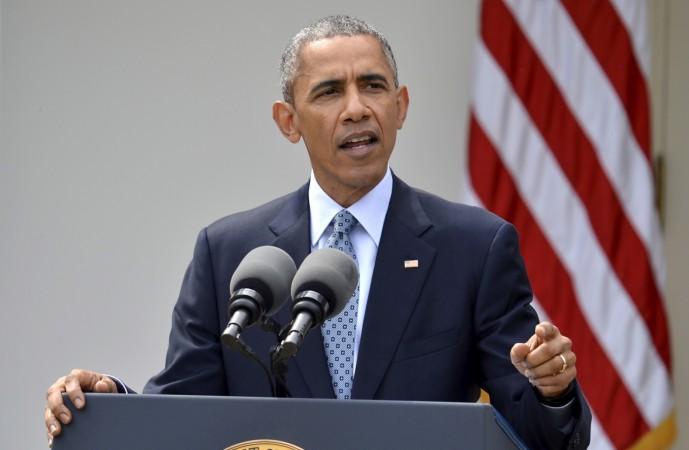
The United States President Barack Obama has banned new oil and gas drilling projects in most of the waters owned by the US in Arctic and Atlantic oceans. The move is seen as a last attempt to secure environmental protections for the region before US president-elect Donald Trump takes the American top job.
Trump, during his presidential campaign, had said that he wants to open up more lands for mining and drilling. After assuming presidency, he is likely to roll back many of the environmental restrictions placed by President Barack Obama on the federal lands and opening up mining on many.
Obama on Tuesday made use of a 1953 law, which allows the President of the United States to permanently block the sale of new offshore drilling and mining rights, and this would make it difficult for his successors to the presidential seat to reverse his decision.
Reports state that Obama's ban, however, is unprecedented in scale and is likely to be challenged by the next US president Donald Trump in court. The ban mainly affects the federal waters off Alaska in the Chukchi Sea and most of the Beaufort Sea and in the Atlantic from New England to the Chesapeake Bay, the Guardian reported.
Trump also plans to tap into America's untapped energy resources and exploit fossil fuels. He has also proposed that big energy companies should have more access to land under the federal government's guidance. Trump has also questioned climate change saying that the phenomena is "made up," and has also threatened to tear up the Paris climate agreement reached by various leaders from the world.
Trump has also appointed people in his new administration who are deniers of climate change which has led all the environmentalists in the nation asking Obama to impose the strictest regulations possible to protect his legacy of cautions towards climate change.
The decision was jointly announced by the US President Obama and the Canadian Prime Minister Justin Trudeau. They also put a new moratorium on new oil and gas leasing in the nations' Arctic waters, subject to a review periodically.
"These actions, and Canada's parallel actions, protect a sensitive and unique ecosystem that is unlike any other region on earth. They reflect the scientific assessment that, even with the high safety standards that both our countries have put in place, the risks of an oil spill in this region are significant and our ability to clean up from a spill in the region's harsh conditions is limited. By contrast, it would take decades to fully develop the production infrastructure necessary for any large-scale oil and gas leasing production in the region – at a time when we need to continue to move decisively away from fossil fuels," Obama said.












